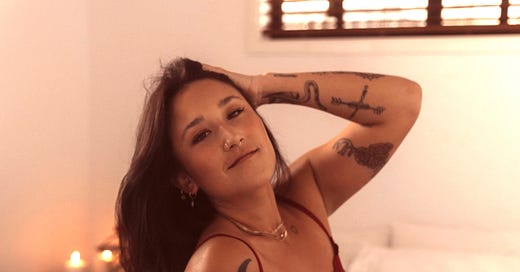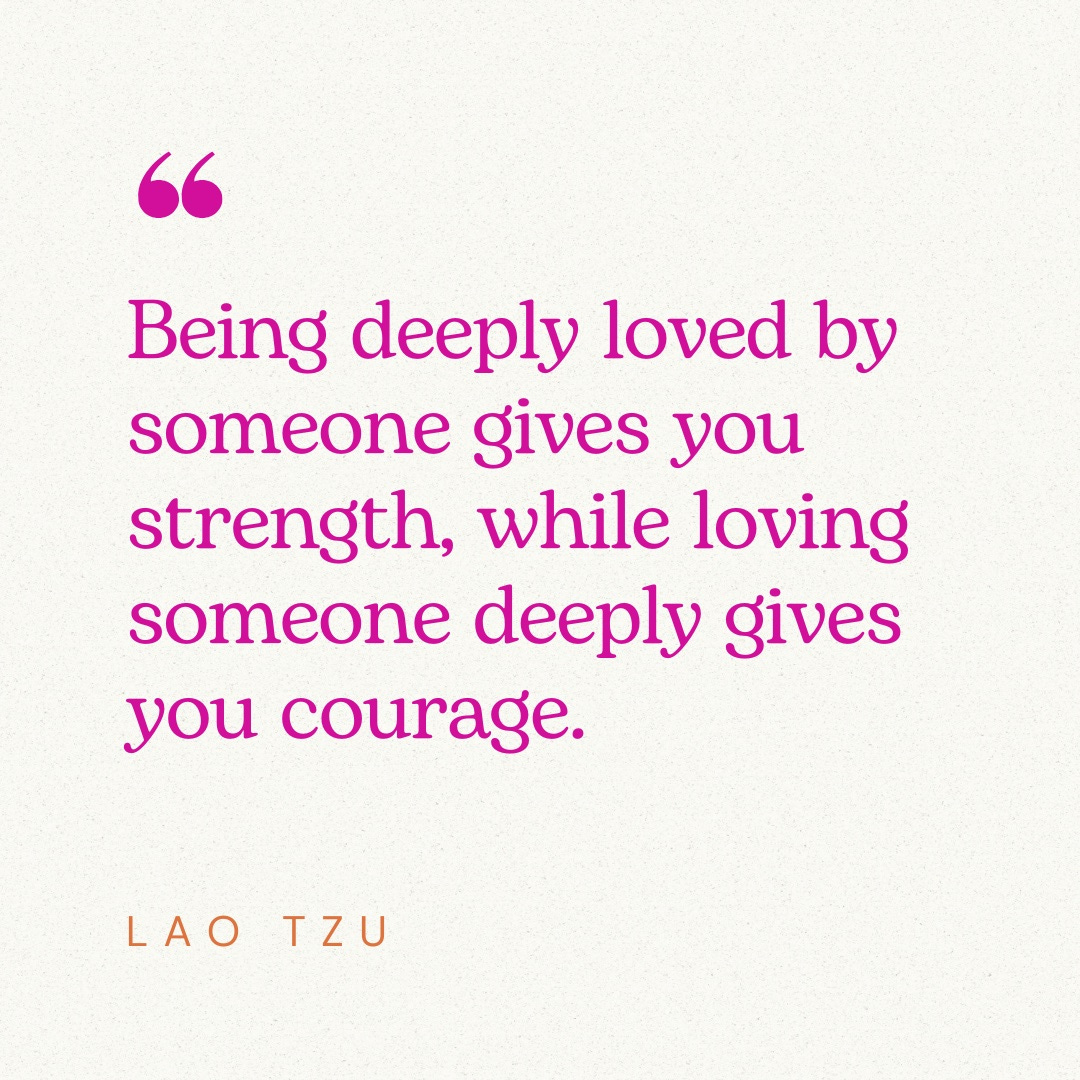Issue 50: "Hapa Girl Diaries: A Yearning to Belong" by Erin Jieun Ryan
Immigrant Hustle: A Monthly Mini Memoir
Heeey KP!
I hope you are warm and cozy this week in the middle of winter! I was introduced to Erin a few months ago through a friend who shared that she was seeking more connection to Korean community and to her Korean roots — most of which Erin lost when she lost her Korean immigrant mother to cancer at age seven. I cannot fathom what it is like to lose a parent and myriad meaningful touchstones at such a tender age.
Thank you Erin for sharing your heart with us along with the aches and opportunities that come with parental loss. You remind us to contemplate the impact of separation from our heritage and homeland — the disconnection that comes with being a second-generation immigrant. And thank you for inspiring us to “love ferociously and live boldly” in honor of the people we have lost.
“Hapa Girl Diaries: A Yearning to Belong” by Erin Jieun Ryan
Erin Jieun Ryan is a California native and lover of travel, nature, dance, the arts, fashion, and holistic living. Erin’s mission lives through her work as a certified somatic sex coach and therapeutic yoni massage practitioner. Her devotion is to support individuals in the realms of pleasure, connection, and intimacy through a holistic approach; addressing the body, mind, spirit, and emotions as a whole. She is passionate about creating inclusive spaces for you to get curious about your inner world. Learn more about Erin’s work at the-intimacyartist.com or follow her on IG @theintimacyartist.
Growing up, I vividly remember going to our local Korean church with my mother every Sunday - never missing. We went to Korean school to learn the language at our church, too. I always felt odd since I did not look like all the other Korean kids. I was born in the early 1990s to my immigrant Korean mother and my Irish-American father. With my sister born a few years before me, we were a family of four.
We also were part of the children's church choir “God’s Image” - where we actually traveled to Korea to perform. My mother made bibimbap, japchae and bulgogi regularly. We would eat sitting on the floor around our low table as I struggled with my chopsticks. I was obsessed with kimchi, of course. We would get groceries at our local Korean market and I would be so excited to get home so I could down several Yakults and devour some injeolmi. And simultaneously, we would also go to our local English-speaking church, get groceries at Albertson's, and spend holidays with my father’s side of the family here in California. I was deeply immersed in our Korean-American community as well as my Irish-American community. My mother was Umma and my father, Dad. A feeling of both cultures integrated and at the same time not feeling quite Korean enough at all. It was a strange, liminal space I would oscillate between which also became an ongoing theme in my life.
A massive rupture occurred when I was seven. My mother got diagnosed with stage four lung cancer and it spread rapidly. For a year, she fought it and we spent many days in the hospital with her when we weren’t at school. I’d lie in the hospital bed with Umma to cuddle when she had the energy. And when she needed a break, I’d spend my time making friends with all the nurses or riding my green Razor scooter in the nearby parking structure while my dad ordered us Papa John’s. This was our life. Then she passed in December 2000, just a couple days after Christmas. Suddenly, my whole world shattered and I actually couldn't comprehend it at the time. Where did this leave me? Where did Umma go?
As the months passed and turned into years, my sister and I became more “Americanized.” Naturally this happened living in California and being raised only by my father. Our only close Korean relative, my Eemo, lived in Australia. No more Korean church or Korean school, no home cooked Korean dishes, and no Korean language spoken to me. As a child, I just rolled with it and this became my new normal. My California white girl essence was born.
Flash forward to high school - I began to notice this emptiness I felt inside. A disconnect from a part of me, which I believe subconsciously drove me. I decided to take Korean as my language elective. Most of the other kids in class were full ethnic Korean with the exception of me and my best friend who actually wasn’t Korean-American at all. Again, I felt like I didn’t fully fit in since I was only part-Korean. We learned the basics, watched Dae Jang-Geum in class, and did fun projects involving Korean music and culture. In hindsight, I know I was searching for my mother and my Korean-ness in the texts and teachings.
This yearning within went through periods of dormancy – when I was preoccupied with college, partying and boys as a young twentysomething. The unhinged, unabashed period I like to call it where “young, wild, and free” was my anthem. Although, the yearning was always there, quiet and waiting.
As I got older, people always asked me, “What are you?” Or “What is your ethnicity?” and I honestly loved it. I was always proud to say, “I’m half-Korean, half-Irish! I’m hapa.” Hapa is the Hawaiian word that refers to someone being half-Asian and half something else. Then as the questions continued, “Do you speak Korean?” Is your mom or dad Korean? Have you been to Korea?” I couldn’t help but feel this pit in my stomach. Since I didn’t speak Korean and my Korean mother had passed, Korean culture altogether felt like a distant memory or dream that was slipping away upon waking. I felt like an imposter. As if I was not Korean enough to even say I was part Korean because I had nothing to show for it. There it was again… the longing.
It’s 2019, I’m living in Byron Bay, Australia, after several years of soul-searching travel all throughout Southeast Asia, Europe, and the UK – which cracked me open in ways language cannot convey. I’ve found my calling and soul purpose through somatic sexology and therapeutic bodywork. As I dove deeper into my studies, reflections began to surface on pivotal moments in my life that got lost: when I began menstruating, when I had sex for the first time, when I wanted to start dating, when I felt sexually violated. My mother wasn’t there for any of it. All the moments when a young girl needs her mother. I couldn’t help but feel like I missed out. Missed out on being Korean, missed out on having a mother.
What if there will always be this yearning? A blend of frustration that I missed out and an insatiable search to feel whole. A thirst that cannot be quenched. The strange, liminal, in-between space. Can I be okay here? I have unintentionally become an expert at straddling this and that, feeling empty and being whole. My yearning for my Korean culture is directly tied to my yearning for my mother.
I’ve found that this is where I belong, in both worlds having two experiences concurrently. Finding acceptance in my longing and knowing to my core that the trajectory of my life is not coincidence nor fixed. Being both a Korean-American and an Irish-American woman continues to mold my perspective, while being a motherless daughter has gifted me the will to love ferociously and live boldly. I am the legacy of my mother, of my mother’s mother, and of all the Korean women that came before me.
Quotation Meditation
Love comes to mind easily during the week of Valentine’s Day — whether you celebrate it or not. This old adage reminds me that love is a powerful verb. And it motivates me to continue loving others and receive loving care back.











“My yearning for my Korean culture is directly tied to my yearning for my mother.” This really hit me. I’m an adoptee, so different pathway to loss, but same end result. Thank you for sharing a piece of your story 💛